- Home
- Nora Roberts
Gabriel's Angel Page 7
Gabriel's Angel Read online
Page 7
“My mother was very young when I was born. Unmarried. She … I went to live with my aunt until … until things became difficult for her, financially. There were foster homes after that. That isn’t really the point.”
“Isn’t it?”
She took a steadying breath. “I don’t want you to feel sorry for me. I’m not telling you this so that you’ll feel sorry for me.”
The pride was evident in the tilt of her head, in the tone of her voice—the same quiet pride he was trying to capture on canvas. His fingers itched for his sketchpad, even as they itched to touch her face. “All right, I won’t.”
With a nod, she continued. “From what I can gather, things were very hard on my mother. Even without the little I was told, it’s easy enough to imagine. She was only a child. It’s possible that she wanted to keep me, but it didn’t work out. My aunt was older, but she had children of her own. I was essentially another mouth to feed, and when it became difficult to do so, I went into foster care.”
“How old were you?”
“Six the first time. For some reason it just never seemed to work out. I would stay in one place for a year, in another for two. I hated not belonging, never being a real part of what everyone else had. When I was about twelve I went back with my aunt for a short time, but her husband had problems of his own, and it didn’t last.”
He caught something in her voice, something that made him tense. “What sort of problems?”
“They don’t matter.” She shook her head and started to rise, but Gabe put his hand firmly on hers.
“You started this, Laura, now finish it.”
“He drank,” she said quickly. “When he drank he got mean.”
“Mean? Do you mean violent?”
“Yes. When he was sober, he was discontented and critical. Drunk, he was—could be—vicious.” She rubbed a hand over her shoulder, as if she were soothing an old wound. “My aunt was his usual target, but he often went after the children.”
“Did he hit you?”
“Unless I was quick enough to get out of his way.” She managed a ghost of a smile. “And I learned to be quick. It sounds worse than it was.”
He doubted it. “Go on.”
“The social services took me away again and placed me in another home. It was like being put on hold. I remember when I was sixteen, counting the days until I’d be of age and able to at least fend for myself. Make … I don’t know, make some of my own decisions. Then I was. I moved to Pennsylvania and got a job. I was working as a clerk in a department store in Philadelphia. I had a customer, a woman, who used to come in regularly. We got friendly, and one day she came in with a man. He was short and balding—looked like a bulldog. He nodded to the woman and told her she’d been absolutely right. Then he handed me a business card and told me to come to his studio the next day. Of course, I had no intention of going. I thought … that is, I’d gotten used to men …”
“I imagine you did,” Gabe said dryly.
It still embarrassed her, but since he seemed to take it in stride she didn’t dwell on it. “In any case, I set the card aside and would have forgotten about it, but one of the girls who worked with me picked it up later and went wild. She told me who he was. You might know the name. Geoffrey Wright.”
Gabe lifted a brow. Wright was one of the most respected fashion photographers in the business—no, the most. Gabe might not know much about the fashion business, but a name like Geoffrey Wright’s crossed boundaries. “It rings a bell.”
“When I found out he was a professional, a well-known photographer, I decided to take a chance and go to see him. Everything happened at once. He was very gruff and had me in makeup and under the lights before I could babble an excuse. I was terribly embarrassed, but he didn’t seem to notice. He barked out orders, telling me to stand, sit, lean, turn. He had a fur in his vault—a full-length sable. He took it out and tossed it around my shoulders. I thought I was dreaming. I must have said so aloud, because while he was shooting he laughed and told me that in a year I could wear sable to breakfast.”
Saying nothing, Gabe settled back. With his eyes narrowed, he could see her, enveloped in furs. There was a twist in his stomach as he thought about her becoming one of Wright’s young and casually disposable mistresses.
“Within a month I had done a layout for Mode magazine. Then I did another for Her, and one for Charm. It was incredible. One day I was selling linens and the next I was having dinner with designers.”
“And Wright?”
“No one in my life had ever been as good to me as Geoffrey. Oh, I knew he saw me as a commodity half the time, but he set himself up as, I don’t know, a watchdog. He had plans, he’d tell me. Not too much exposure too quickly. Then, in another two years, there wouldn’t be a person in the Western world who wouldn’t recognize my face. It sounded exciting. Most of my life I’d been essentially anonymous. He liked that, the fact that I’d come from nothing, from nowhere. I know some of his other models saw him as cold. He often was. But he was the closest thing I’d ever had to a father.”
“Is that how you saw him?”
“I suppose. And then, after all he’d done for me, after all the time he’d invested, I let him down.” She started to rise again, and again Gabe stopped her.
“Where are you going?”
“I need some water.”
“Sit. I’ll get it.”
She used the time to compose herself. Her story was only half done, and the worst part, the most painful part, was yet to come. He brought her a clear glass with ice swimming in it. Laura took two long sips, then continued.
“We went to Paris. It was like being Cinderella and being told midnight never had to come. We were scheduled to be there for a month, and because Geoffrey wanted a very French flavor to the pictures we went all over Paris for the shoot. We went to a party one night. It was one of those gorgeous spring nights when all the women are beautiful and the men handsome. And I met Tony.”
He caught the slight break in her voice, the shadow of pain in her eyes, and knew without being told that she was speaking now of her baby’s father.
“He was so gallant, so charming. The prince to my Cinderella. For the next two weeks, whenever I wasn’t working, I was with Tony. We went dancing, we ate in little cafés and walked in the parks. He was everything I’d thought I’d wanted and knew I could never have. He treated me as though I were something rare and valuable, like a diamond necklace. There was a time when I thought that was love.”
She fell silent for a moment, brooding. That had been her mistake, her sin, her vanity. Even now, a year later, it cut at her.
“Geoffrey grumbled and talked about rich young pups sowing wild oats, but I wouldn’t listen. I wanted to be loved, I wanted so terribly for someone to care, to want me. When Tony asked me to marry him, I didn’t think twice.”
“You married him?”
“Yes.” She looked at him again. “I know I led you to believe that I hadn’t married the baby’s father. It seemed easiest.”
“You don’t wear a ring.”
Color washed into her face. The shame of it. “I sold them.”
“I see.” There was no condemnation in the two words, but she felt it nonetheless.
“We stayed in Paris for our honeymoon. I wanted to go back to the States and meet his family, but he said we should stay where we were happy. It seemed right. Geoffrey was furious with me, lectured and shouted about me wasting myself. At the time I thought he meant my career, and I ignored him. It was only later that I realized he meant my life.”
She jumped when a log fell apart in the fire. It was easier to continue if she looked at the flames, she discovered. “I thought I’d found everything I’d ever wanted. When I look back I realize that those weeks we spent in Paris were like a kind of magic, something that’s not quite real but that you believe because you aren’t clever enough to see the illusion. Then it was time to come home.”
She linked her hands together and be
gan to fidget. He had come to recognize it as a sign of inner turmoil. Though the urge was there, he didn’t take them in his to calm her. “The night before we were to leave, Tony went out. He said he had some business to tie up. I waited for him, feeling a little sorry for myself that my new husband would leave me alone on our last night in Paris. Then, as it got later and later, I stopped feeling sorry for myself and started feeling frightened. By the time he got back, it was after three and I was angry and upset.”
She fell silent again. Gabe pulled the afghan from the back of the couch and spread it over her lap. “You had a fight.”
“Yes. He was very drunk and belligerent. I’d never seen him like that before, but I was to see him like that again. I asked him where he’d been and he said—essentially he told me it was none of my business. We started shouting at each other, and he told me he’d been with another woman. At first I thought he said that just to hurt me, but then I saw that it was true. I started to cry.”
That was the worst of it, Laura thought, looking back on the way she’d crumbled and wept. “That only made him angrier. He tossed things around the suite, like a little boy having a tantrum. He said things, but the gist of it was that I’d have to get used to the way he lived, and that I hardly had a right to be upset when I’d been Geoffrey’s whore.”
Her voice broke on the last word, so she lifted the glass and cooled her throat with the water. “That hurt the most,” she managed. “Geoffrey was almost like a father to me, never, never anything else. And Tony knew, he knew that I’d never been with anyone before our wedding night. I was so angry then, I stood up and began to shout at him. I don’t even know what I said, but he went into a rage. And he—”
Gabe saw her fingers tighten like wires on the soft folds of the afghan. Then he saw how she deliberately, and with great care, relaxed them again. With an effort, he kept his voice calm. “Did he hit you, Laura?”
She didn’t answer, couldn’t seem to push the next words out. Then he touched a hand to her cheek and turned her face to his. Her eyes were brimming over.
“It was so much worse than with my uncle, because I couldn’t get away. He was so much stronger and faster. With my uncle, he’d simply struck out at anyone who didn’t get out of the way in time. With Tony, there was something viciously deliberate in the way he tried to hurt me. Then he—” But she couldn’t bring herself to speak of what had happened next.
It was a moment before she went on, and Gabe sat in silence as the rage built and built inside him until he thought he’d explode. He understood temper, he had a hair-trigger one of his own, but he could never understand, never forgive, anyone who inflicted pain on someone smaller, weaker.
“When it was over,” she continued, calmer now, “he just went to sleep. I lay there, not knowing what to do. It’s funny, but later, when I talked with other women who had had some of the same experiences, I found out that it’s fairly common to believe you had it coming somehow.
“The next morning, he wept and he apologized, promised that it would never happen again. That became the pattern for the time we were together.”
“You stayed with him?”
The color came and went in her face, and part of that, too, was shame. “We were married, and I thought I could make it work. Then we went back to his parents’ home. They hated me right from the start. Their son, the heir to the throne, had gone behind their back and married a commoner. We lived with them, and though there was talk about getting our own house, nothing was ever done about it. You could sit at the same table, hold a conversation with them, and be totally ignored. They were amazing. Tony got worse. He began to see other women, almost flaunting them. They knew what he was doing, and they knew what was happening to me. The cycle got uglier and uglier, until I knew I had to get out. I told him I wanted a divorce.
“That seemed to snap him out of it for a while. He made promises, swore he’d go into therapy, see a marriage counselor, anything I wanted. We even began to look at houses. I have to admit that I’d stopped loving him by this time, and that it was wrong, very wrong, for me to stay with him, to make promises myself. What I didn’t realize was that his parents were pulling on the other end. They held the financial strings and were making it difficult for him to move out. Then I discovered I was pregnant.”
She laid a hand over her belly, her fingers spread. “Tony was, well, at best ambivalent about the idea of having a child. His parents were thrilled. His mother immediately started redecorating a nursery. She bought antique cribs and cradles, silver spoons, Irish linen. Though it made me nervous, the way she was taking over, I thought that the baby might be the way to help us come together. But they weren’t looking at me as the baby’s mother, any more than they’d looked at me as Tony’s wife. It was their grandchild, their legacy, their immortality. We stopped looking for houses, and Tony began to drink again. I left the night he came home drunk and hit me.”
She drew a careful breath and continued to stare at the fire. “It wasn’t just me he was hitting now, but the child. That made all the difference. In fact, it made it incredibly easy to walk out. I called Geoffrey, buried my pride and asked for a loan. He wired me two thousand dollars. I got an apartment of my own, found a job and started divorce proceedings. Ten days later, Tony was dead.”
The pain came, dull and low. Laura shut her eyes and rode it out. “His mother came to see me, begged me to bury the divorce papers, to come to the funeral as Tony’s widow. His reputation, his memory, were all that was important now. I did what she asked, because—because I could still remember those first days in Paris. After the funeral I went back to their house. They’d told me there were things we needed to talk about. That was when they told me what they wanted, what they intended to have. They said they would pay all my medical expenses, that I would have the best possible care. And that after the baby was born they would give me a hundred thousand dollars to step aside. When I refused, when I had the nerve to be angry at what they were suggesting, they explained that if I didn’t cooperate they would simply take the baby. Tony’s baby. They made it very clear that they had enough money and influence to win a custody suit. They would bring out the ‘fact’ that I had been Geoffrey’s mistress, that I had taken money from him. They’d checked my background and would show that due to my upbringing I would be an unstable influence on a child. That they, as the child’s grandparents, could provide a better environment. They gave me twenty-four hours to think it over. And I ran.”
He didn’t speak for several minutes. What she had told him had left a bitter taste in his mouth. He had asked for her story, had all but demanded it. Now that he had it, he wasn’t at all sure he could handle it.
“Laura, no matter what you were told, how you were threatened, I don’t believe they could take the child.”
“That isn’t enough? Don’t you see? As long as there’s a chance, I can’t risk it. I’d never be able to fight them on their terms. I don’t have the money, the connections.”
“Who are they?” When she hesitated, he took her hand again. “You’ve trusted me with this much.”
“Their name is Eagleton,” she said. “Thomas and Lorraine Eagleton of Boston.”
His brows drew together. He knew the name. Who didn’t? But because of his family’s position, it was more than a name, more than an image. “You were married to Anthony Eagleton?”
“Yes.” She turned to him then. “You knew him, didn’t you?”
“Not well. Barely. He was more—” More Michael’s age, he’d started to say. “He was younger. I met him once or twice when he came to the Coast.” And what he had seen hadn’t impressed him enough to have him form any opinion. “I read that he had been killed in a car accident, and I suppose a wife was mentioned, but this past year has been a little difficult, and I didn’t pay attention. My family has socialized with the Eagletons occasionally, but they aren’t well acquainted.”
“Then you know they’re an old, well-established family with old, well-establ
ished money. They consider this child a part of their … holdings. They’ve had me followed all across the country. Every time I would settle in a place and begin to relax I’d discover that detectives were making inquiries about me. I can’t—I won’t—let them find me.”
He rose, to pace, to light a cigarette, to try to organize his thoughts and, more, his feelings. “I’d like to ask you something.”
She sighed tiredly. “All right.”
“Once before, when I asked you if you were afraid, you said no, that you were ashamed. I want to know why.”
“I didn’t fight back, and I didn’t try hard enough to fix what was wrong. I just let it happen to me. You have no idea how difficult it is to sit here and admit that I let myself be used, that I let myself be beaten, that I let myself be driven down so low that I accepted it all.”
“Do you still feel that way?”
“No.” Her chin lifted. “No one’s ever going to take control of my life again.”
“Good.” He sat on the hearth. The smoke from his cigarette disappeared up the draft. “I think you’ve had a hell of a time, angel, worse than anyone deserves. Whether you brought some of it on yourself, as you choose to think, or if it was just a matter of circumstances, doesn’t really matter at this point. It’s over.”
“It’s not as easy as that, Gabe. I don’t just have myself to worry about now.”
“How far are you willing to go to fight them?”
“I’ve told you I can’t—”
He interrupted her with a wave of his hand. “If you had the means. How far?”
“All the way. As far and as long as it takes. But that isn’t the point, because I don’t have the means.”
He drew on his cigarette, studied it with apparent interest, then tossed it into the fire. “You would, if you were married to me.”
Chapter Five
She said nothing, could say nothing. He sat on the hearth, his

 A Little Magic
A Little Magic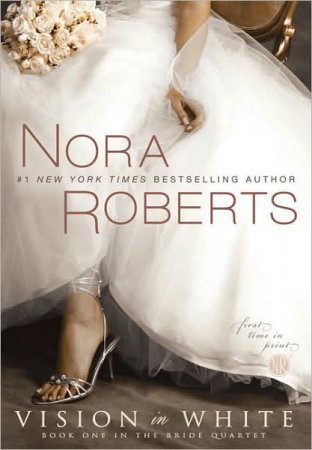 Vision in White
Vision in White True Betrayals
True Betrayals The Next Always
The Next Always A Man for Amanda
A Man for Amanda Born in Fire
Born in Fire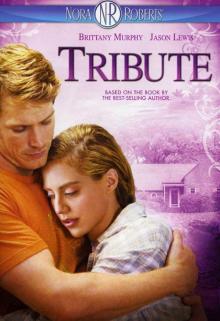 Tribute
Tribute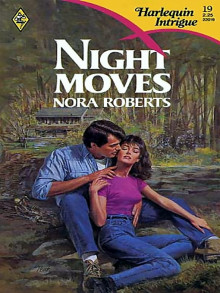 Night Moves
Night Moves Dance Upon the Air
Dance Upon the Air The Name of the Game
The Name of the Game Jewels of the Sun
Jewels of the Sun River's End
River's End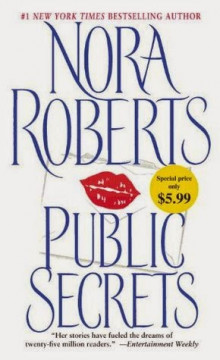 Public Secrets
Public Secrets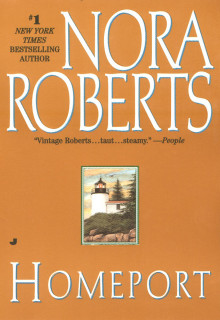 Homeport
Homeport Private Scandals
Private Scandals The Witness
The Witness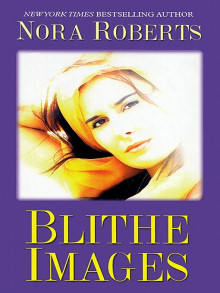 Blithe Images
Blithe Images Hidden Riches
Hidden Riches Key of Light
Key of Light Divine Evil
Divine Evil High Noon
High Noon Blue Dahlia
Blue Dahlia Sea Swept
Sea Swept This Magic Moment
This Magic Moment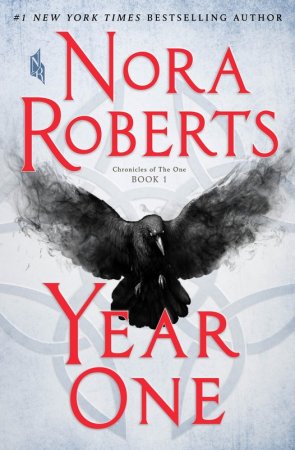 Year One
Year One A Little Fate
A Little Fate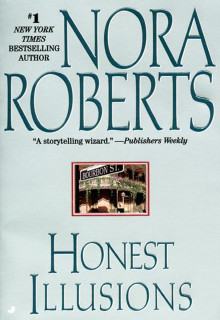 Honest Illusions
Honest Illusions The Reef
The Reef Shelter in Place
Shelter in Place The Hollow
The Hollow Holding the Dream
Holding the Dream The Pagan Stone
The Pagan Stone Savour the Moment
Savour the Moment The Perfect Hope
The Perfect Hope Island of Glass
Island of Glass Happy Ever After
Happy Ever After Bed of Roses
Bed of Roses Stars of Fortune
Stars of Fortune Dark Witch
Dark Witch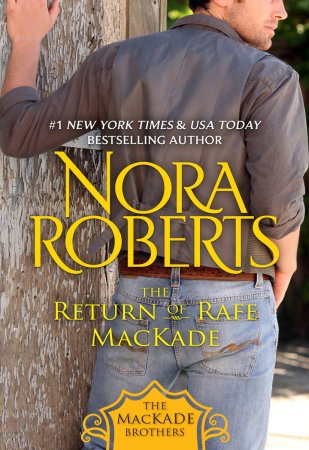 The Return of Rafe MacKade
The Return of Rafe MacKade Chesapeake Blue
Chesapeake Blue The Perfect Neighbor
The Perfect Neighbor The Collector
The Collector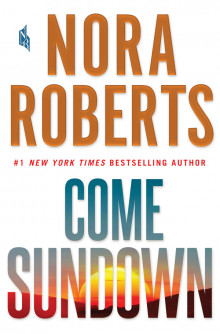 Come Sundown
Come Sundown Rebellion
Rebellion Affaire Royale
Affaire Royale Daring to Dream
Daring to Dream Bay of Sighs
Bay of Sighs Blood Magick
Blood Magick Angels Fall
Angels Fall Captivated
Captivated The Last Boyfriend
The Last Boyfriend Irish Thoroughbred
Irish Thoroughbred Inner Harbor
Inner Harbor The Right Path
The Right Path Night Shadow
Night Shadow The Heart of Devin MacKade
The Heart of Devin MacKade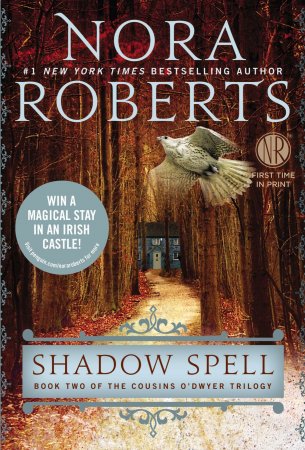 Shadow Spell
Shadow Spell The Playboy Prince
The Playboy Prince The Fall of Shane MacKade
The Fall of Shane MacKade Rising Tides
Rising Tides Command Performance
Command Performance Hidden Star
Hidden Star Cordina's Crown Jewel
Cordina's Crown Jewel The MacGregor Brides
The MacGregor Brides The Pride of Jared MacKade
The Pride of Jared MacKade Born in Ice
Born in Ice Whiskey Beach
Whiskey Beach The Last Honest Woman
The Last Honest Woman Night Shield
Night Shield Born in Shame
Born in Shame Secret Star
Secret Star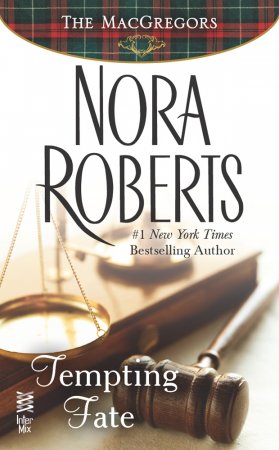 Tempting Fate
Tempting Fate Nightshade
Nightshade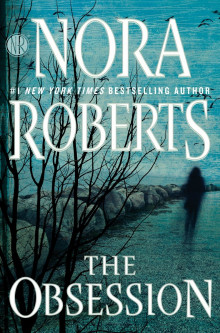 The Obsession
The Obsession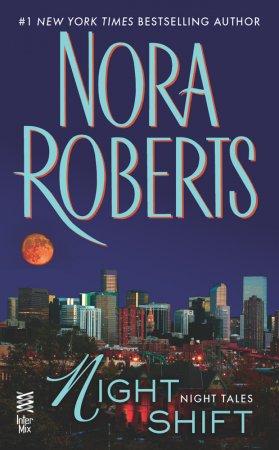 Night Shift
Night Shift Playing The Odds
Playing The Odds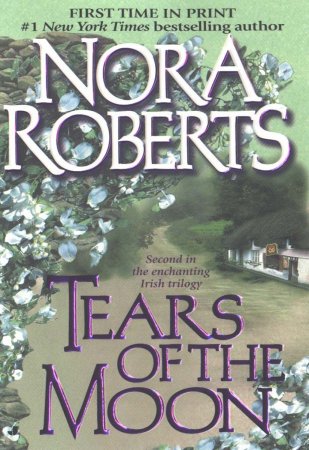 Tears of the Moon
Tears of the Moon One Man's Art
One Man's Art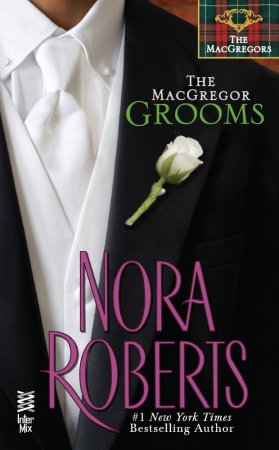 The MacGregor Groom
The MacGregor Groom Irish Rebel
Irish Rebel Morrigan's Cross
Morrigan's Cross In From The Cold
In From The Cold Night Smoke
Night Smoke Finding the Dream
Finding the Dream Red Lily
Red Lily The Liar
The Liar Montana Sky
Montana Sky Heart of the Sea
Heart of the Sea All The Possibilities
All The Possibilities Opposites Attract
Opposites Attract Captive Star
Captive Star The Winning Hand
The Winning Hand Key of Valor
Key of Valor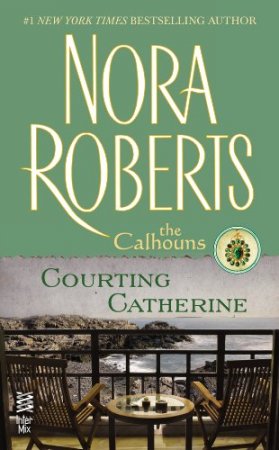 Courting Catherine
Courting Catherine Heaven and Earth
Heaven and Earth Face the Fire
Face the Fire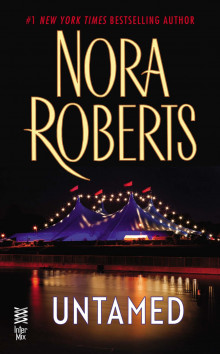 Untamed
Untamed Skin Deep
Skin Deep Enchanted
Enchanted Song of the West
Song of the West Suzanna's Surrender
Suzanna's Surrender Entranced
Entranced Dance of the Gods
Dance of the Gods Key of Knowledge
Key of Knowledge Charmed
Charmed For Now, Forever
For Now, Forever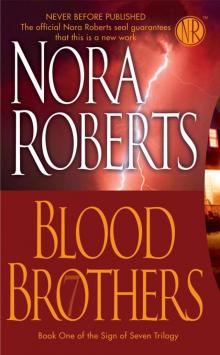 Blood Brothers
Blood Brothers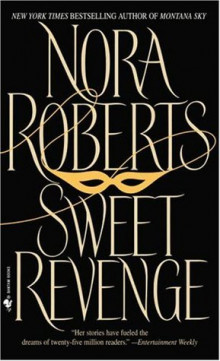 Sweet Revenge
Sweet Revenge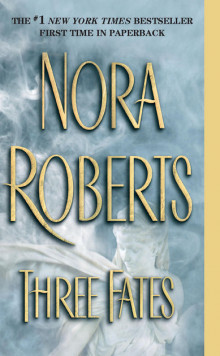 Three Fates
Three Fates Mind Over Matter
Mind Over Matter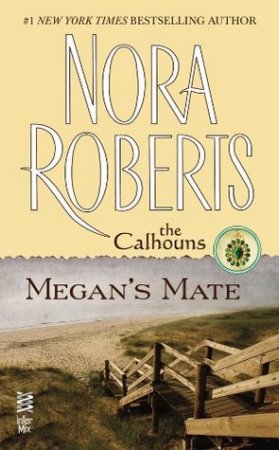 Megan's Mate
Megan's Mate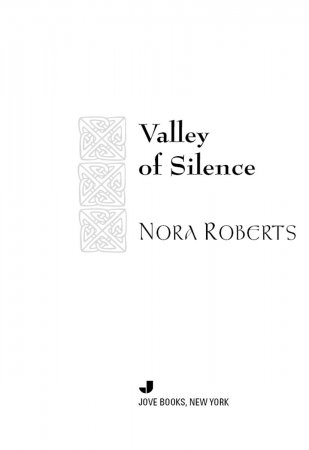 Valley of Silence
Valley of Silence Without A Trace
Without A Trace The Law is a Lady
The Law is a Lady Temptation
Temptation Dance to the Piper
Dance to the Piper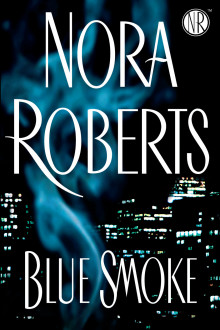 Blue Smoke
Blue Smoke Black Hills
Black Hills The Heart's Victory
The Heart's Victory Sullivan's Woman
Sullivan's Woman Genuine Lies
Genuine Lies For the Love of Lilah
For the Love of Lilah Gabriel's Angel
Gabriel's Angel Irish Rose
Irish Rose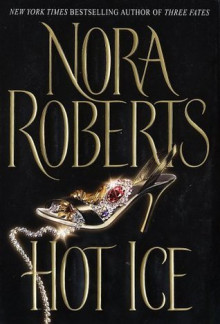 Hot Ice
Hot Ice Dual Image
Dual Image Lawless
Lawless Catch My Heart
Catch My Heart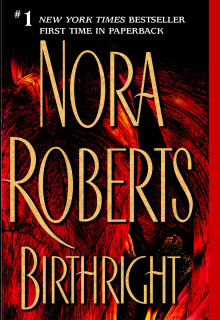 Birthright
Birthright First Impressions
First Impressions Chasing Fire
Chasing Fire Carnal Innocence
Carnal Innocence Best Laid Plans
Best Laid Plans The Villa
The Villa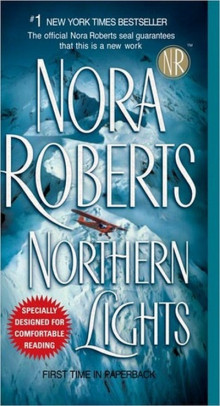 Northern Lights
Northern Lights Local Hero
Local Hero Island of Flowers
Island of Flowers The Welcoming
The Welcoming All I Want for Christmas
All I Want for Christmas Black Rose
Black Rose Hot Rocks
Hot Rocks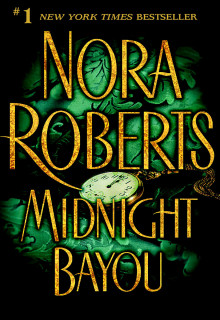 Midnight Bayou
Midnight Bayou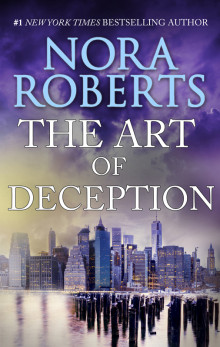 The Art of Deception
The Art of Deception From This Day
From This Day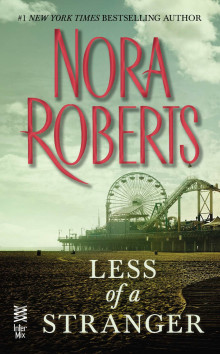 Less of a Stranger
Less of a Stranger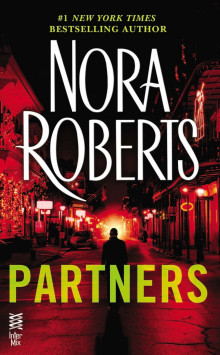 Partners
Partners Storm Warning
Storm Warning Once More With Feeling
Once More With Feeling Her Mother's Keeper
Her Mother's Keeper Sacred Sins
Sacred Sins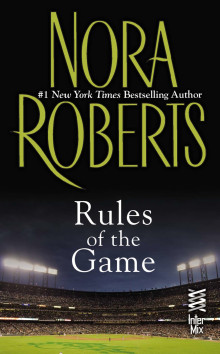 Rules of the Game
Rules of the Game Sanctuary
Sanctuary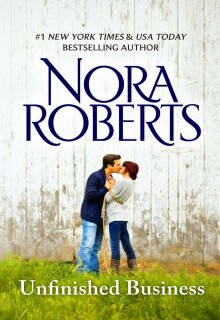 Unfinished Business
Unfinished Business Cordina's Royal Family Collection
Cordina's Royal Family Collection Dangerous Embrace
Dangerous Embrace One Summer
One Summer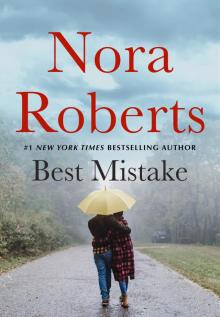 The Best Mistake
The Best Mistake Boundary Lines
Boundary Lines Under Currents
Under Currents The Stanislaski Series Collection, Volume 1
The Stanislaski Series Collection, Volume 1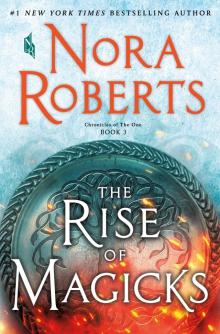 The Rise of Magicks
The Rise of Magicks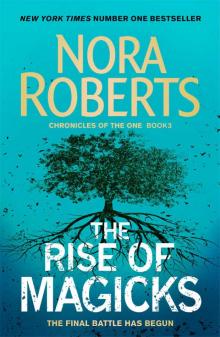 The Rise of Magicks (Chronicles of The One)
The Rise of Magicks (Chronicles of The One) The Awakening: The Dragon Heart Legacy Book 1
The Awakening: The Dragon Heart Legacy Book 1 Dance of Dreams
Dance of Dreams Skin Deep: The O'Hurleys
Skin Deep: The O'Hurleys The Quinn Legacy: Inner Harbor ; Chesapeake Blue
The Quinn Legacy: Inner Harbor ; Chesapeake Blue![[Chronicles of the One 03.0] The Rise of Magicks Read online](http://i1.bookreadfree.com/11/chronicles_of_the_one_03_0_the_rise_of_magicks_preview.jpg) [Chronicles of the One 03.0] The Rise of Magicks
[Chronicles of the One 03.0] The Rise of Magicks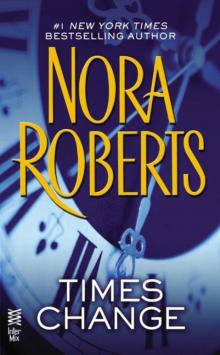 Times Change
Times Change Dance to the Piper: The O'Hurleys
Dance to the Piper: The O'Hurleys Christmas In the Snow: Taming Natasha / Considering Kate
Christmas In the Snow: Taming Natasha / Considering Kate Waiting for Nick
Waiting for Nick Summer Desserts
Summer Desserts Dream 2 - Holding the Dream
Dream 2 - Holding the Dream The Novels of Nora Roberts, Volume 2
The Novels of Nora Roberts, Volume 2 In the Garden Trilogy
In the Garden Trilogy Eight Classic Nora Roberts Romantic Suspense Novels
Eight Classic Nora Roberts Romantic Suspense Novels Best Laid Plans jh-2
Best Laid Plans jh-2 From the Heart
From the Heart Holiday Wishes
Holiday Wishes Dream 1 - Daring to Dream
Dream 1 - Daring to Dream Second Nature
Second Nature Summer Pleasures
Summer Pleasures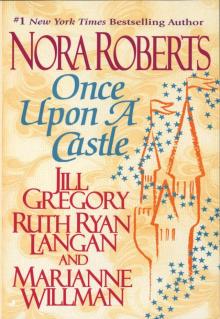 Once Upon a Castle
Once Upon a Castle Stars of Mithra Box Set: Captive StarHidden StarSecret Star
Stars of Mithra Box Set: Captive StarHidden StarSecret Star Impulse
Impulse The Irish Trilogy by Nora Roberts
The Irish Trilogy by Nora Roberts The Pride Of Jared Mackade tmb-2
The Pride Of Jared Mackade tmb-2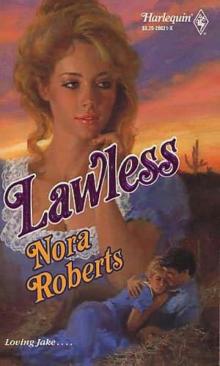 Lawless jh-3
Lawless jh-3 Taming Natasha
Taming Natasha Endless Summer
Endless Summer Bride Quartet Collection
Bride Quartet Collection Happy Ever After tbq-4
Happy Ever After tbq-4 Heart Of The Sea goa-3
Heart Of The Sea goa-3 Search for Love
Search for Love Once upon a Dream
Once upon a Dream Once Upon a Star
Once Upon a Star Dream Trilogy
Dream Trilogy Risky Business
Risky Business The Novels of Nora Roberts, Volume 3
The Novels of Nora Roberts, Volume 3 Dream 3 - Finding the Dream
Dream 3 - Finding the Dream Promises in Death id-34
Promises in Death id-34 The Novels of Nora Roberts, Volume 4
The Novels of Nora Roberts, Volume 4 The Perfect Hope ib-3
The Perfect Hope ib-3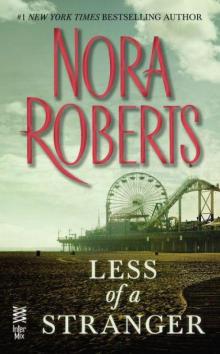 Less than a Stranger
Less than a Stranger Savour the Moment: Now the Big Day Has Finally Arrived, It's Time To...
Savour the Moment: Now the Big Day Has Finally Arrived, It's Time To... Convincing Alex
Convincing Alex Bed of Roses tbq-2
Bed of Roses tbq-2 Savour the Moment tbq-3
Savour the Moment tbq-3 Lessons Learned
Lessons Learned Key Of Valor k-3
Key Of Valor k-3 Red lily gt-3
Red lily gt-3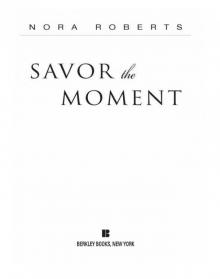 Savor the Moment
Savor the Moment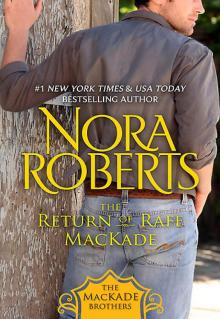 The Return Of Rafe Mackade tmb-1
The Return Of Rafe Mackade tmb-1 For The Love Of Lilah tcw-3
For The Love Of Lilah tcw-3 Black Rose gt-2
Black Rose gt-2 Novels: The Law is a Lady
Novels: The Law is a Lady Chesapeake Bay Saga 1-4
Chesapeake Bay Saga 1-4 Considering Kate
Considering Kate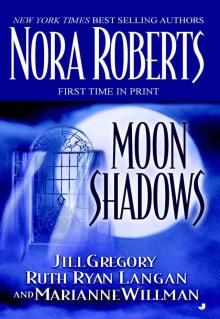 Moon Shadows
Moon Shadows Key of Knowledge k-2
Key of Knowledge k-2 The Sign of Seven Trilogy
The Sign of Seven Trilogy Once Upon a Kiss
Once Upon a Kiss The Novels of Nora Roberts, Volume 5
The Novels of Nora Roberts, Volume 5 Suzanna's Surrender tcw-4
Suzanna's Surrender tcw-4 The Quinn Brothers
The Quinn Brothers Falling for Rachel
Falling for Rachel Brazen Virtue
Brazen Virtue Time Was
Time Was The Gallaghers of Ardmore Trilogy
The Gallaghers of Ardmore Trilogy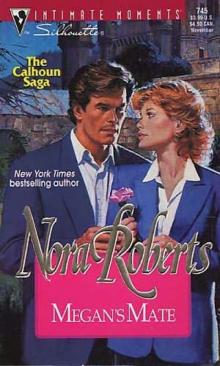 Megan's Mate tcw-5
Megan's Mate tcw-5 Loving Jack jh-1
Loving Jack jh-1 Rebellion & In From The Cold
Rebellion & In From The Cold Blue Dahlia gt-1
Blue Dahlia gt-1 The MacGregor Grooms
The MacGregor Grooms The Next Always tibt-1
The Next Always tibt-1 The Heart Of Devin Mackade tmb-3
The Heart Of Devin Mackade tmb-3 The Novels of Nora Roberts Volume 1
The Novels of Nora Roberts Volume 1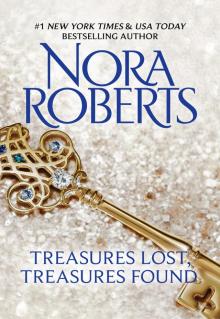 Treasures Lost, Treasures Found
Treasures Lost, Treasures Found Nora Roberts's Circle Trilogy
Nora Roberts's Circle Trilogy The Key Trilogy
The Key Trilogy The Fall Of Shane Mackade tmb-4
The Fall Of Shane Mackade tmb-4 A Will And A Way
A Will And A Way Jewels of the Sun goa-1
Jewels of the Sun goa-1 Luring a Lady
Luring a Lady